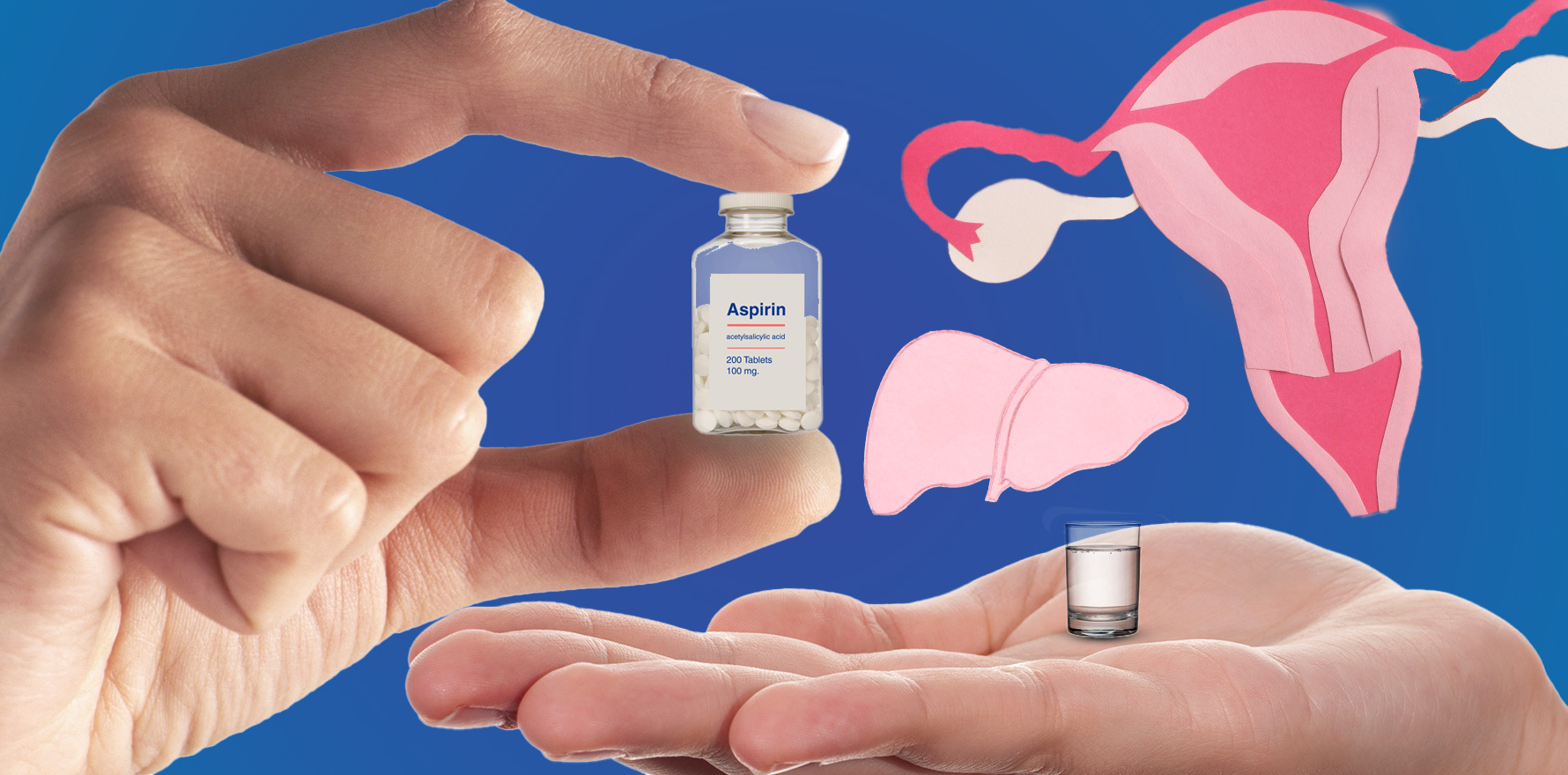The little daily tablet may also reduce hepatic fat in people with liver disease, research suggests.
Daily low-dose aspirin is associated with a lower risk of ovarian cancer in women who have not had children and those with cardiovascular disease, research suggests.
An analysis of Danish and Swedish studies including almost 12,000 women found that nulliparous women who took daily aspirin had 20% lower odds of developing ovarian cancer compared to almost 500,000 age-matched controls without a history of cancer.
Across the whole cohort, low-dose aspirin was associated with a 3% lower risk of ovarian cancer, which the researchers said was non-statistically significant.
The association also differed according to cardiovascular disease diagnosis, they said. Women without a history of cardiovascular disease who took low-dose aspirin had 9% lower odds of ovarian cancer, while those with a history of cardiovascular disease had 5% higher odds.
“Due to the high mortality of this type of cancer, opportunities for chemoprevention should be explored further in high-risk groups,” the researchers said in the British Journal of Cancer.
“However, the potential benefits should be weighed against the potential side effects and additional research on this aspect is required.”
Commenting on the research, epidemiologist and ovarian and endometrial cancer researcher Professor Penny Webb said it was too early to recommend that all women take low-dose aspirin to reduce their risk of ovarian cancer.
“A woman’s risk of ovarian cancer is already low so any potential benefit for an individual is likely to be small and the known harms of aspirin might be greater,” said the distinguished scientist at QIMR Berghofer Medical Research Institute.
“It is possible that aspirin might benefit subgroups of women who have a much higher risk of developing ovarian cancer – for example, those with a genetic mutation that increases their cancer risk – but I don’t think we know this yet,” she told TMR.
Professor Webb said the study potentially measured aspirin use better than previous studies because they used prescription data and not self-reported data.
“But not all low-dose aspirin in Denmark is obtained via a prescription, so there may still be some misclassification,” she said.
“Although there is evidence from other studies that taking low-dose aspirin might reduce risk of ovarian cancer, I am not sure the current study adds greatly to this because they did not see an association overall and previous studies have not reported differences by parity.”
Professor Webb said the ASPREE trial found that aspirin use in older people did not reduce the incidence of cancer overall and may have increased rates of advanced cancer.
“Although aspirin is generally very safe, it can cause serious adverse effects and is contra-indicated in some people.”
The findings come as US research in JAMA shows that daily low-dose aspirin significantly reduced hepatic fat quantity compared with placebo in people with metabolic dysfunction-associated steatotic liver disease (MASLD).
After six months, the participants who took daily low-dose aspirin had a 10% overall reduction in liver fat compared with those who took a placebo.
Researchers measured the mean absolute hepatic fat content of participants in the two groups using proton magnetic resonance spectroscopy at the six month follow-up.
They found that participants in the aspirin group had a 6.6% reduction in liver fat while those in the placebo group experienced a 3.6% increase – a difference of 10.2%.
Almost half of the patients in the aspirin treatment group had a 30% or greater reduction in their individual liver fat content, while only 12.5% of placebo patients experienced a similar reduction.
Absolute hepatic fat content, measured by magnetic resonance imaging proton density fat fraction (MRI-PDFF), showed a decrease in the aspirin group by 2.7%, while the placebo group experienced an increase by 0.9% – a difference of 3.7%.
There was also a significant difference in relative hepatic fat content measured by MRI-PDFF: aspirin led to a decrease of 27.3 percentage points compared to placebo (-11.7 vs +15.7 respectively).
The incidence of adverse events was the same in both groups, with 10% of each experiencing upper respiratory tract infection. One participant in the aspirin group experienced drug-related heartburn.
Despite being a small trial, the authors concluded that the results were significant for finding a low-cost way to reduce liver fat for people suffering from MASLD.


